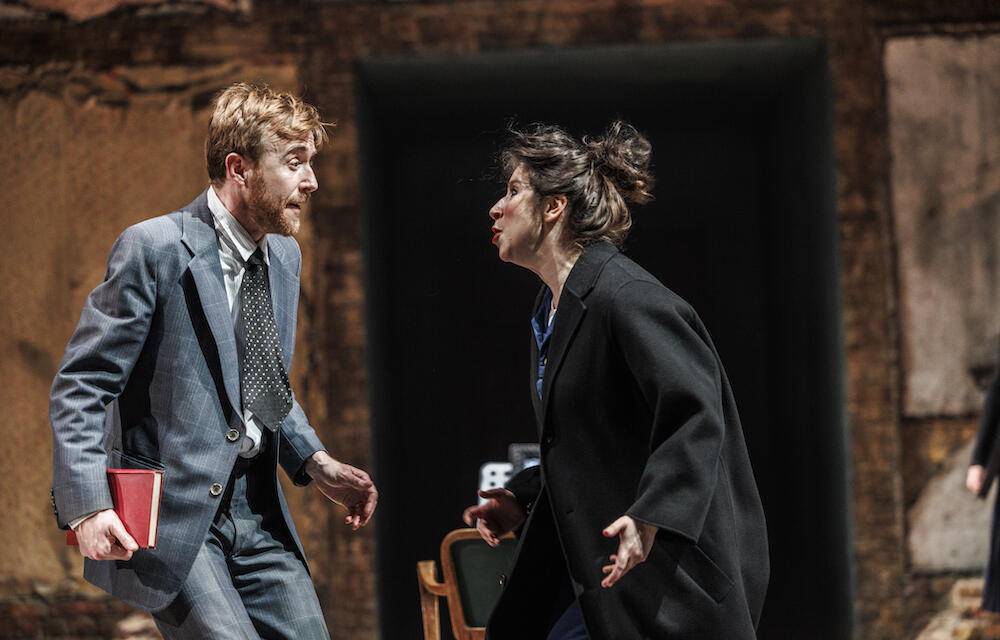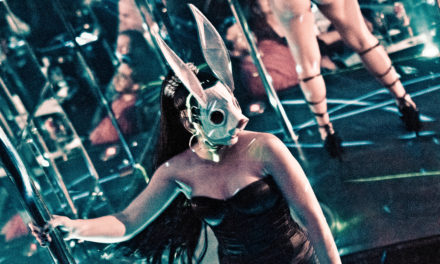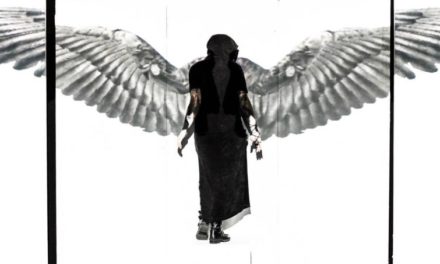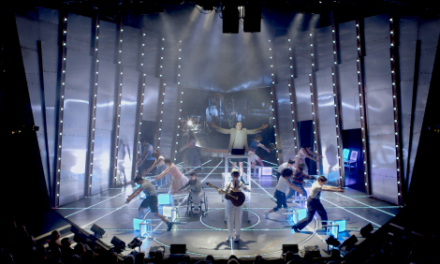We’ve all heard of the metaphorical madwoman in the attic, but what about the symbolic unexploded bomb under the roof, tucked away among the junk, accumulating dust and lying quietly undiscovered? Until, one day, someone sets it off. In Marius von Mayenburg’s provocative 2022 play, Nachtland, siblings Nicola and Philipp are clearing out their recently dead father’s house when they find an old watercolour painting hidden away at the top of the building. It looks like a piece of throwaway kitsch — until they examine it and discover the painter’s signature: “A. Hitler”.
Like Yasmina Reza’s 1994 play, Art, which showed three men arguing over the merits of a plain white canvas, von Mayenburg expertly examines the way that the same piece of art can be viewed from different angles. At first, the watercolour is derided as an old-fashioned view of a Viennese church, then it becomes a commodity that can be sold, a profit to the family, then a source of shame, and finally an indictment of a whole society. For while Nicola is married to the ineffectual Fabian, Philipp’s wife is the passionately precise Judith — yes, as her name implies, she’s Jewish. And for her the painting is a monstrosity to be destroyed.
As Robert Harris shows in Selling Hitler, his 1986 book on the Hitler diaries scandal, the Fuhrer is a marketable commodity. Anything about him can be used to sell anything, whether it is fake or not. So von Mayenburg introduces Evamaria, an expert on Hitler’s art, who has to authenticate the watercolour while the family disputes what to do with their discovery. As the evening unfolds, the play’s plotting twists and turns like any moral dilemma: is the painting a real Hitler? Even if it’s a fake, what is its worth? And how did it come to be a family heirloom?
Finally, the arrival of a buyer, the wildly eccentric Kahl, accelerates the action, which spills over into an intense discussion about anti-Semitism and the salable value of human bodies as well as paintings. The sheer intensity of the arguments, their obvious relevance to us today, and the dazzling acrobatics of the ideas are both provocative and thrilling. To be worth anything a painting has to have a documented provenance — this much we know from the long-running BBC series Fake or Fortune — so to cash in on this painting the family have to invent a Nazi past for their parents and grandparents, exactly the opposite of the denials of some Germans after 1945.
This is a drama of ideas, with not much characterization, but plenty of pungent satire. Von Meyenburg has his personages articulate ideas and attitudes that are very common, but seldom expressed — he brings prejudice out into the open. This works very well for the analysis of anti-Semitism in Nachtland, an invented word which suggests a world of unlimited darkness, and the dialogues show how vile attitudes can emerge in slips of the tongue, how anti-Jewish sentiment can be both conscious and unconscious. In its German context, the play shows how difficult it is to shake off the weight of history, and how objects can embody reminders of the past.
While the play challenges latent anti-Semitism in the UK as well as in Europe, it also suggests that consumer capitalism is so pervasive that not only anything, but also anybody, can be bought and sold. It does so by using a mixture of playwriting techniques, from passionate argument to direct address to the audience, and it mixes entertainment with discomfort. At one crucial moment the question of if and how we can separate the character of the artists from that of their creation is pugnaciously addressed. The mix of tone includes naturalism, absurdism, farce and Brechtian devices, all of which come across clearly in Patrick Marber’s English-language premiere of this translation by Maja Zade.
Of course, you can’t watch this play today without being conscious of the war in Gaza, and on the press night one lone voice let out a whoop at the brief mention of Palestine. Although the text does criticize, in passing, the treatment of the Palestinians by the state of Israel, it rather skates over this aspect of our current malaise. Instead, the focus is on the long shadow of the Fuhrer, and the stage action features a comic Nazi salute as well as an increasingly frantic discussion about how to authenticate a Hitler painting, with a ring (cue Wagner music) which might have been given by Martin Bormann to one of his lovers making an appearance — and proving how the artifacts of history are always open to interpretation.
Marber’s production begins with a pre-show in which the cast warm up by clearing the stage of the piles of junk that cover the playing space as we enter the auditorium. Anna Fleischle’s set is dominated by a derelict building which not only represents the family home, but also suggests social decay, and Marber’s cast lead us, with verve and clarity, through the discussions of art, monetary value versus aesthetics, and genocidal prejudice. Dorothea Myer-Bennett and John Heffernan as the bickering siblings Nicola and Philipp are wonderfully awful, while a bespectacled Jane Horrocks plays Evamaria with a cool confidence which foregrounds her character’s unsavoury nature.
Likewise, there’s a good contrast between Gunnar Cauthery’s comic Fabian and Jenna Augen’s outraged Judith, whose point of view comes across loud and clear. But this is essentially a comedy, albeit with dark edges, so the most memorable performance is that of Angus Wright as the larger-than-life Kahl who dances to Iggy Pop in revealing skintight black pants, while Adam Cork’s vivid score includes David Bowie too. The result is a successful 90 minutes of fun amid some powerfully unsettling reminders of the darkest moments of 20th-century history. One minute you giggle, the next you hold your head in horror. Yes, this show leaves no room for complacency.
- Nachtland is at the Young Vic until 20 April.
This post was written by the author in their personal capacity.The opinions expressed in this article are the author’s own and do not reflect the view of The Theatre Times, their staff or collaborators.
This post was written by Aleks Sierz.
The views expressed here belong to the author and do not necessarily reflect our views and opinions.


















